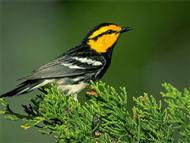Biology



- Ecology Revision
Ecology The following are some points to help you, it does not contain everything! You must revise on your own making summary notes and diagrams to help you. You have your notes, this web and your text book to help you. Please use all of these resources,...
- Symbiosis
Symbiosis is where there is a persistent interaction between organisms. There are various forms by which this can take place: where both benefit (Mutualism), where one benefits and the other is not really harmed or helped (commensalism) and...
- Commensalism
Commensalism is a type of relationship between to different organisms, in which one organism benefits from the other without harming him. For example, cattle egrets eat insects that normally stick to cows or similar animals. The cows help cattle egrets...
- Interactions Among Organisms
INTERACTIONS AMONG ORGANISMSSymbiotic Strategies http://www.teachersdomain.org/resource/nat08.living.eco.humeco.lpsymstra/ Read ?OVERVIEW? and answer the following questions:1. Write a sentence (using your own words) explaining...
- Symbiosis
Term: symbiosis Origin: Anc Greek ???/syn(=together, with)????/vios(=life) >literally meaning ?living together? Coined:In 1879 by the German botanist and father of plant pathology Heinrich Anton deBary ("The Phenomenon of Symbiosis", 1879). It...
Biology
Mutualism, Parasitism, Commensalism
What are Mutualism, Parasitism and Commensalism?
Mutualism is a relationship between organisms of different species in which both benefit from the relationship. For example, bees and flowers. The bees help pollinate the flowers for reproduction which benefits the flower, while the bees get nectar from the flower which benefits the bees. It is a win-win kind of association.

Parasitism is a relationship when one organism (parasite) benefits at the expense of another organism of a different species (called the host). For example, a flea and a dog. The flea is benefiting by feeding off of the dogs blood, while the dog is being hurt and harmed by the flea. Only one organism is getting any benefit out of the relationship.

Commensalism a relationship between two different species in which one of them benefits from the relationship and the other is not harmed or benefiting from the association. For example, birds and trees. The bird benefits from the tree by using it as shelter and a place to find food, where as the tree is neither harmed or getting any benefit from the bird.

- Ecology Revision
Ecology The following are some points to help you, it does not contain everything! You must revise on your own making summary notes and diagrams to help you. You have your notes, this web and your text book to help you. Please use all of these resources,...
- Symbiosis
Symbiosis is where there is a persistent interaction between organisms. There are various forms by which this can take place: where both benefit (Mutualism), where one benefits and the other is not really harmed or helped (commensalism) and...
- Commensalism
Commensalism is a type of relationship between to different organisms, in which one organism benefits from the other without harming him. For example, cattle egrets eat insects that normally stick to cows or similar animals. The cows help cattle egrets...
- Interactions Among Organisms
INTERACTIONS AMONG ORGANISMSSymbiotic Strategies http://www.teachersdomain.org/resource/nat08.living.eco.humeco.lpsymstra/ Read ?OVERVIEW? and answer the following questions:1. Write a sentence (using your own words) explaining...
- Symbiosis
Term: symbiosis Origin: Anc Greek ???/syn(=together, with)????/vios(=life) >literally meaning ?living together? Coined:In 1879 by the German botanist and father of plant pathology Heinrich Anton deBary ("The Phenomenon of Symbiosis", 1879). It...
